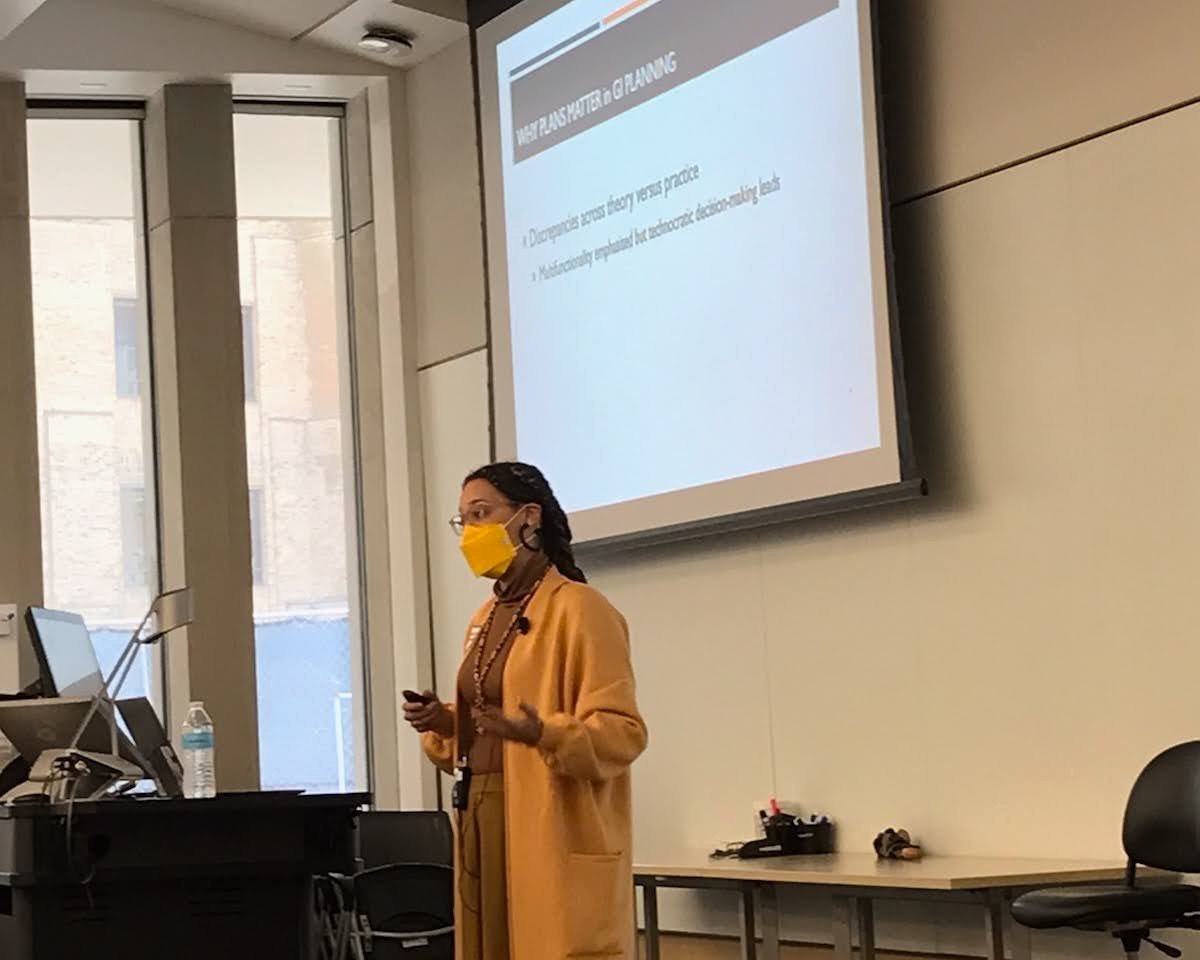Teaching.
Who we are is in direct relationship to the space and land we are from. Situating place and identity in environmental planning discourse is an integral component of my teaching. By merging theories that center race and environmental justice with urban greenspace and planning, I create pathways for students to explore relationships between socio-environmental interactions, urban planning, and community building.

Courses
GEOG 4300/5300 Black Place-Making: Introduction to Black Geographies
Black geographies is a discipline within the critical geographies cannon that studies the social, political, cultural, economic, and ecological aspects of race in/and geography. The course encourages critical reflection on the issues, processes, intrinsic qualities, and interconnections that shape Black lives and geographies on local, national, continental, and international scales. This course introduces students to the rich body of literature and activism highlighting the characteristics, politics, and practices that shape and are shaped by Black communities, and their connections to place, self and the environment. The course focuses on the United States, but examples and readings from across the diaspora will be included. In this seminar-style class, students will be encouraged to engage in critical reflection and creative thinking. Black Geographies topics to be covered include but are not limited to: place-making and Black aesthetics, environmental stewardship and activism, and community means of resistance.
GEOG 3215 Environmental Planning
Urban environments are some of the most highly managed spaces, where people shape who, what, where, and how natural and environmental resources are managed and accessed. Social drivers play a large in these decision-making processes, but may not be incorporated into urban planning practices or techniques. This writing-intensive course explores the interaction and relationships between natural and human-made elements of the environment with emphasis on planning concepts and methodologies used in contemporary environmental planning.
Water & Race.
Water is and continues to be a resource of great cultural, environmental, and commercial importance, where the access, control and management of water resources often follows political and racial lines. Despite oceans comprising the majority of the earth, just 2.5% of this is freshwater (non-salinized), such that when layered with our understandings of climate change and environmental justice, reveals connections and implications across race and justice, particularly when examining phenomena like extreme flooding or drought. This course uses environmental justice framings paired with a black ecofeminist lens to examine the deeply intertwined relationship between water and race.
Interdisciplinary Research Design.
Understanding different methodological approaches and how to use them is an important and valuable skill. Quantitative approaches help us uncover and expose larger scale phenomenon while qualitative approaches help us understand the processes and drivers behind the phenomenon. In this course, we'll explore the different quantitative and qualitative approaches to both individual and collaborative research.



